When Andy Coley applied to be on a Channel 4 show about being a spy, he was asked to sign an NDA before he ‘knew anything’.
Spies aired back in 2016 for just four episodes and saw ordinary members of the public undergo vigorous training exercises with three ex-intelligence officers.
The show offered a glimpse into the world of working as a secret agent and featured real life spies – Cameron Colquhoun, Julian Fisher and Deborah.
Andy, 48, originally from Plymouth was on the Channel 4 programme and revealed to MailOnline all about his experience.
He signed a contract agreeing to be kidnapped, subjected to psychological games and more after applying to be on the show through an advertisement shared in a newsletter.
During the first round of interviews, the leadership development trainer said: ‘You’ve got to queue up sign an NDA form saying that you’re happy to be filmed and that you’re happy that they do stuff to you, give you alcohol, kidnap you, maybe use firearms, they subject you to psychological stuff.
‘You got to sign this before you know or do anything.’
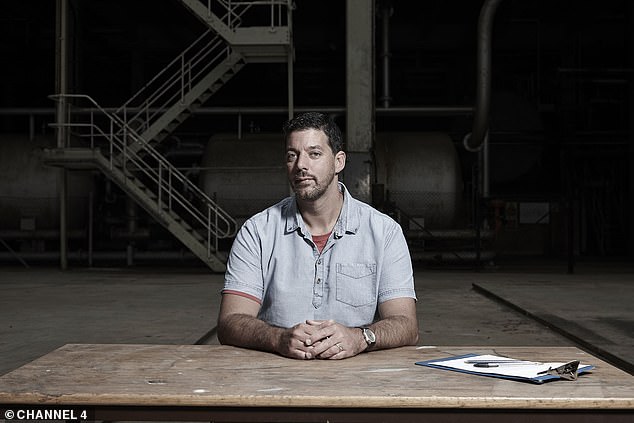
When Andy Coley (pictured) applied to be on a Channel 4 show about being a spy, he was asked to sign an NDA before he ‘knew anything’
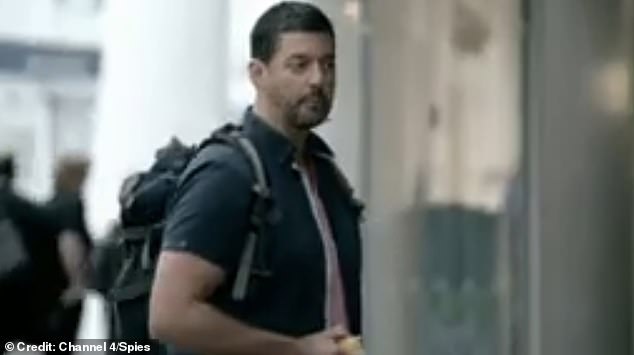
Spies aired back in 2016 for just four episodes and saw ordinary members of the public undergo vigorous training exercises with three ex-intelligence officers
He was then subjected to a ‘couple of psychometric tests’, including one that was ‘like an IQ test’.
Those who made it through to the next round of applications were then invited to interviews in front of the camera.
After a psychological check, producers whittled down perspective contestants to the final 20 and Andy was told he would be needed for filming within weeks.
‘I’d found out I’d got a place on this TV show, and it was going to be filming in like two or three weeks time,’ he said.
When the show began, the selected few were put in separate hotels across the New Forest and were then picked up at 4:30am and taken to the filming location.
‘That was basically as much as we knew, we were going to be away for up to two weeks,’ Andy explained. ‘You have to bring your passport with you. You have to bring obviously enough clothes… So we were getting a load of sort of pre-info about being away, but nothing about what we were going to be doing.’
They were taken to Fawley Power Station, which has since been demolished, but also featured in Mission: Impossible – Rogue Nation.
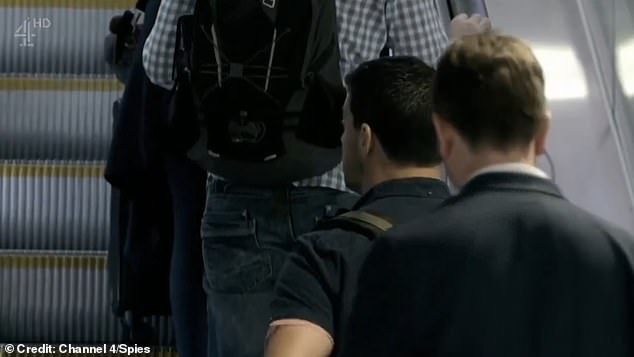
The show offered a glimpse into the world of working as a secret agent and featured real life spies – Cameron Colquhoun, Julian Fisher and Deborah
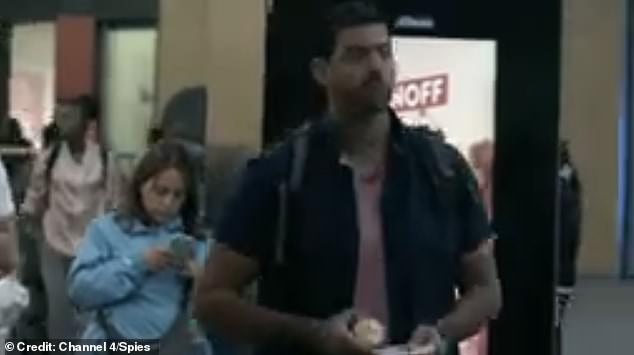
Andy, 48, originally from Plymouth was on the Channel 4 programme and revealed to MailOnline all about his experience
Five participants were cut before the remaining 15 were taken to ‘one big open dormitory’ in the power station.
Andy revealed how they were ‘being filmed 24/7’ including when they were asleep and were fitted with microphones during the day.
‘You’ve got like, three cameras on you while you’re asleep,’ he explained. ‘… obviously no cameras in the loos and toilets and showers and all that kind of stuff. But everywhere else, you know that you’re being filmed because you see the cameras moving. And it’s bit like, I’m sure, the Big Brother house.’
Andy shared how there were people designated to watching them sleep during the show and he was even introduced to the person who spied on him while he was in a slumber – which sent a shiver down his spine.
‘They had people apparently watching us as we’re sleeping. Just checking we’re sleeping well, so I met the person who was watching me sleep,’ he said.
Andy described some of the tasks they had to participate in including when he had to secretly pass along a USB stick at Kings Cross Station.
He said: ‘The tasks we had were things like surveillance and counter surveillance, you know, could you follow somebody, or could you spot if you were being followed?
‘We had to do like a dead drop thing, where you had to go and pick up a USB stick somewhere near canal at Kings Cross and then be able to take it into Kings Cross Station and actually pass it to somebody on escalator. Without being obvious.’
Throughout the process, people were gradually removed from the show until the final round.
Andy didn’t make it to the very end and was told part of the reasoning was he was ‘almost forgettable’.
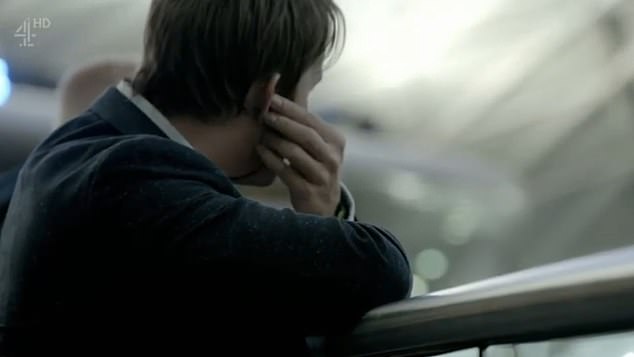
He signed a contract agreeing to be kidnapped, subjected to psychological games and more after applying to be on the show through an advertisement shared in a newsletter
‘I had had enough of being in there by that time,’ he admitted. ‘So I didn’t really care. It had been a really fun time, but I wanted to kind of get out of being on it at that point so I didn’t really mind.’
He added: ‘It would have been nice to have gone and done the last four bit, although that sounds like it was really intense from speaking to the people that did do it.
‘But I think by that time, I’d sort of had enough. It’d been great to be part of being in that bubble, but I kind of wanted to get back to family and all that kind of stuff by then as well.’
Andy says some of the skills he learnt on the show, he already used in his life but they have now been ‘reinforced’.
‘A lot of skills that I certainly used on the on the show, like the rapport building or the social engineering stuff I kind of already knew anyway, because there’s a lot that gets taught about building good rapport and listening well to people,’ he explained.
‘All of that kind of stuff I use as a coach or as a trainer anyway, but it definitely reinforced stuff like that.’
He admitted he was ‘definitely more aware about being a bit more suspicious about people’.
‘I’m already quite an observant and spot if there are things that are slightly wrong or feel like there’s something a bit off,’ he added.
Andy joked, ‘I’ve never, you know, had to dead drop a USB stick anywhere lately.’
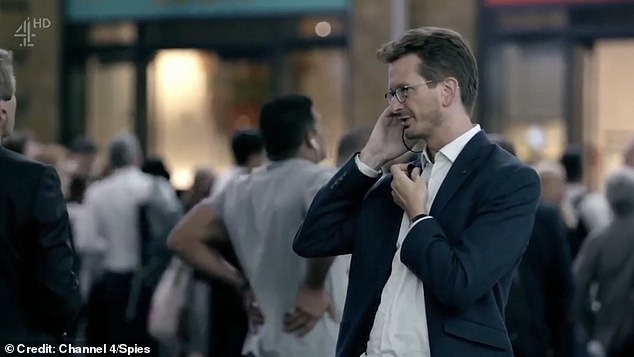
After a psychological check, producers whittled down perspective contestants to the final 20 and Andy was told he would be needed for filming within weeks
However, he felt there ‘probably should be a bit more duty of care stuff’ in the aftermath of the show.
‘Once you got checked out from the show, basically, you met with a production company, and they just obviously, generally checked that you’re okay,’ Andy said.
‘You had another chat with the psychologist, just about going back into real life, having been in this bubble. And then they did do a little bit of follow up stuff with the psychologist. I’ll be honest, not very much.’
There was a psychologist who offered support to contestants but Andy explained how they could have benefited with some more help.
However, he noted that policy may have changed since 2016.
‘I think the psychologist stuff was could probably have definitely been improved with a bit more coaching and a bit more support, particularly when people painted in slightly bad lights in the TV shows and stuff. Just give them that extra bit of support about that,’ he said.
Andy added: ‘I think at the time, there probably wasn’t enough of that being done just to help, to support people when stuff gets broadcast, because it is outside your control. You know what I eventually ends up on TV.’







